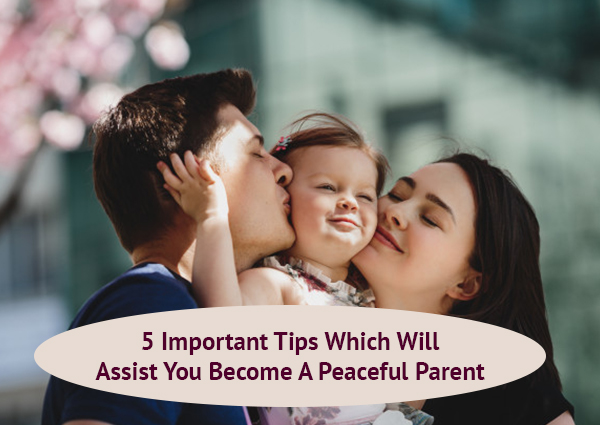5 Important Tips Which Will Assist You Become A Peaceful Parent
In the following article we are going to discuss and important topic that is “5 Important Tips That Will Help You Become a Peaceful Parent” and will discuss regarding it thoroughly within the article:
Peaceful parenting is nothing but using intentional, gentle ways to actually guide children using empathetic as well as cooperative solutions vs trying to actually control their behavior with yelling, bribes and even punishments. It actually involves working with kids by really listening, understanding, responding as well as communicating with intention. Training children with non-aggressive methods actually significantly reduces their temper as well as increases their negotiation skills.
Moreover, the peaceful parenting approach actually gives a broader understanding of the dynamics between the parent/educator and the child.
To approach parenting challenges in a much more constructive way, it’s vital or important for the parent to actually be aware of
- What they’re modelling through their responses to their child,
- The importance of trying to actually meet the underlying needs which will be driving the behaviour,
- The skills that the kid needs to develop for future situations as well as
- The connection, care, and even warmth in the relationship is actually the biggest contributing factor towards a child’s behavior and needs or desires to be preserved.
Take A Second To Notice Your Anger
Instead of mindlessly lashing out to your frustration, step back for a minute to look at or examine it. Pretend you’re an outsider watching the irrational showdown. What does it feel like to you? Where is the actual emotion coming from in your body? Is the feeling actually in your chest, head or stomach? Has your breathing changed? Are your hands shaking or clenching? By disengaging from your anger, you’ll be able to gain a different perspective and weaken your negative emotions.
Create Safety
When your child actually shows you her upsets, stay calm. Don’t take it personally. The more you stay compassionate as well as accepting, the more he or she will feel safe enough to actually show you the woundedness behind his anger. (Anger is simply the body’s fight response to those threatening feelings.) Expressing those tears and fears is healing. Once he shares them with you and he doesn’t even need to know what they’re about or to use words those feelings will evaporate, and he won’t need that chip on his shoulder to protect himself. If she’s stuck in anger, create more safety by being as compassionate as you can about what’s upsetting him. If that isn’t enough to actually help him cry, and he stays angry, it’s actually a sign that he needs more daily empathy, and more daily laughing with you. Both build trust.
Don’t Force Your Child To Apologize
As parents, ever so often we are guilty of not allowing the kid to move on before he has apologized for his wrong behavior. Often times this happens in public. Remember that instead of the kid being remorseful for his behavior, what it further leads to is resentment instead. It is much more effective if in your day to day behavior, you’re seen taking the onus of your actions and apologizing without any shame for things done wrong, even if unwittingly. This behavior will actually be imbibed by the kid and will soon become second nature for him, without you demanding an apology.
Expect Emotions
It’s vital to understand that whatever behavior the kid displays, is really the manifestations of the emotions that he cannot express verbally. Once you understand the logical reason behind the child’s activity, you’ll be able to easily wipe out the root or heal the disturbing emotions, and the child won’t be inclined to behave in that way any longer. This is one among the most significant and useful keys to peaceful parenting, through which the kid actually learns to manage emotions, and thus behavior when provided with the needed love as well as guidance.
Invest In Building A Relationship With Your Child
Quality time spent bonding with your child can actually go a long way in laying the foundation for a loving and caring relationship. With the love and attention the kid receives, not only will he or she blossom it’ll help build a relationship of trust enabling the kid to confide in you. Done right, amidst all the fun and games this bonding time will further provide you many coachable moments where you’ll actually be able to teach your child important lessons.


